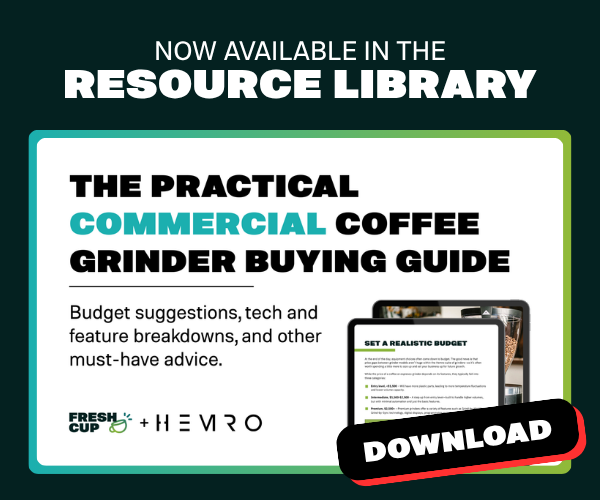[I] am regularly incorrect, in ways that are as diverse as they are simple. Often, I’m incorrect about things that I’m supposed to have some level of expertise in, and I find out how wrong I am in very public ways on social media.
It’s humbling.
Very recently I was bemoaning the requisite waiting period between the time a roast ends and when I can drink it (usually twelve to twenty-four hours of “degassing”). A friend rightly pointed out that if I would simply grind the freshly roasted coffee and let it sit for a bit, the degassing would happen more quickly, allowing me to enjoy a brew much sooner.
Well yeah, I guess that’s right. Shoot. Why didn’t I think of that?
In almost every endeavor there is a point where saying, “I don’t know,” feels wrong. Whether you’re experienced enough to think you ought to know everything, or you’ve achieved a level of success that makes not knowing seem inappropriate (Wait, she doesn’t know that?), “I don’t know” just isn’t a response you offer.
Is it fear that holds us back from admitting ignorance? Fear that we’ll be found out as the impostors we know ourselves to be? Or is it something else, like pride?
I absolutely want to be seen as an individual worthy of respect. I want people to think highly of me and appreciate the work I’ve put into getting to where I am in the industry. Not only that, I hope people will come to me with questions, confident I’ll know the answer. I want to speak with an authority that I’ve earned. All of these desires are totally reasonable. Healthy ambition, we might call it.
However, when healthy ambition prevents me from acknowledging areas where I need to work harder or grow, then it ceases to be healthy. In that instance, my pride holds me back.
These are the moments when humility offers a better solution than a wrong or forced answer.
Humility is the voice in your head that encourages you to listen instead of talk, to test instead of assume, and to be open instead of closed.
Humility is the key to growth in a lot of industries, but it seems especially important in the coffee industry, where we work with a product that most people know so little about. A relatively tiny amount of coffee knowledge will impress your friends and family, and can lull you into a sense that you’ve arrived. You’ve done it! You know a lot. People should listen to you.
In reality, you haven’t arrived, you haven’t done it, and even if you know a lot, there is so much more to know. Humility is the voice in your head that encourages you to listen instead of talk, to test instead of assume, and to be open instead of closed. Humility allows you to receive correction without the fear that you’ll look like a fraud.
A humble student is a student who can learn, right? When we’re learning about how to extract espresso, or make a great pour-over, we’ll improve most when we accept that we don’t already know it all—in most circumstances, we don’t.
When I lack humility, I cease to learn, or at least I cease to learn as much. If I’m not open to the ideas and expertise of others, or if I’m unwilling to acknowledge that other people might know more than me, who will I ever take advice from? How will I grow as a professional in this industry?
I’ll admit that remaining humble is a challenge. Growth in the coffee industry seems to be reserved for those who know the most or present their knowledge definitively. We win respect by planting our flag in the soil of our own idea, then defending it fervently. In our most prestigious competitions, we reward the boldest and most confident competitors, don’t we?
It may seem professionally counterproductive to meekly admit that we don’t know, that we’re not sure, or that we made a mistake. But I will say—at least in my own professional journey—the moments following my own admissions of inadequacy or ignorance have led to periods of incredible growth.
We work in what is generally a very warm, welcoming, and uplifting industry. While the loudest voices may seem to come from the most successful faces, there are lots of very successful people who are best described as humble. Those are the people I find myself admiring most, and the people I most seek to emulate.
When I consider those coffee professionals, I see that their humility has led them not to shame, but to respect. So who am I to think that a humble attitude in this industry will serve me worse than it has served them?
—Nathanael May is the director of coffee at Portland Roasting Coffee.







